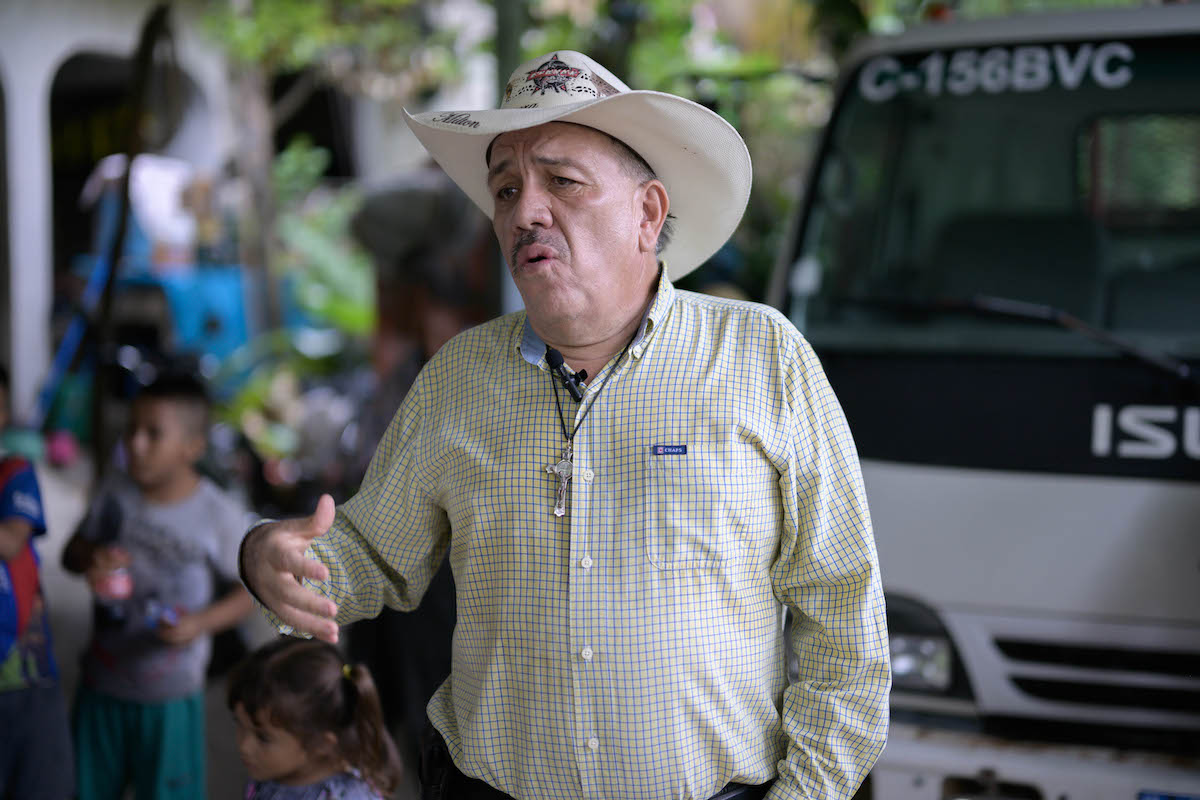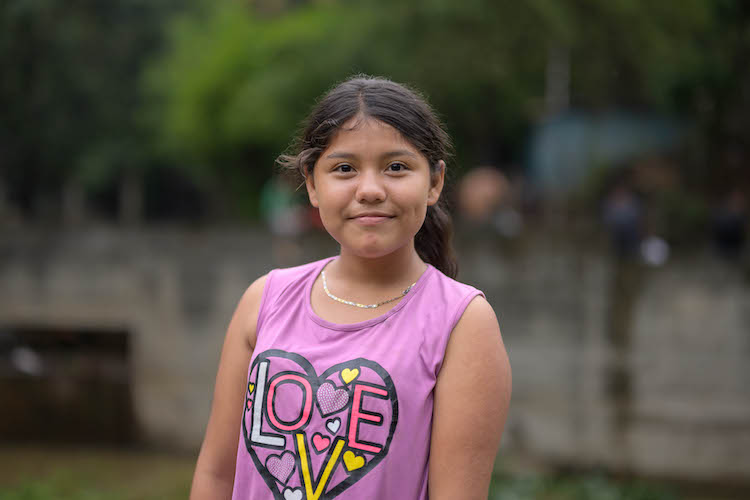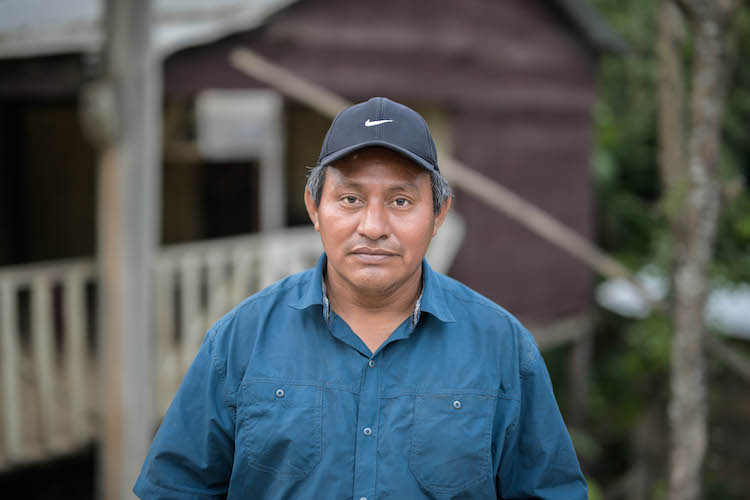Above: Mayoral candidate Milton Cabrera speaks to residents in San Jose del Golfo, Guatemala. Credit: Manuel Ortiz
On Wednesday, a court in Guatemala sentenced celebrated journalist and entrepreneur José Rubén Zamora to six years in prison. International observers slammed the ruling, calling it a clear case of retribution by the Central American nation’s president, Alejandro Giammattei, following years of reporting by Zamora’s newspaper, El Periodico, on cases of alleged corruption involving Giammattei and members of his government.
Zamora’s sentencing comes as Guatemalans prepare to head to the polls on June 25 to elect the country’s next president. Giammattei is constitutionally barred from running for a second four-year term. There are increasing concerns, meanwhile, that Guatemala is sliding into autocracy. Giammattei has been criticized for backsliding on democracy and weaponizing the state to target critics. Several officials in his administration have been placed on Washington’s undemocratic and corrupt actors list.
Photojournalist and founder of Peninsula 360 Press, Manuel Ortiz, says Zamora’s initial arrest and subsequent sentencing has sent a chill across the nation, with journalists choosing to flee the country or go into hiding. Others, he says, continue to report anonymously out of fear for their safety.
Yet even as poverty, corruption, and cartel violence continue to plague the Central American nation, driving many to migrate north to the United States, Ortiz, who just returned from a weeklong visit to the country, says that on the ground, new alliances are being formed by those disillusioned with politics at the center.
Regardless of the election’s outcome, he says, this is where change is happening, one village and municipality at a time.
What was the initial reason for your trip to Guatemala?
I went to meet with journalists and activists, to get a sense of what they are experiencing, how they are responding to the current climate, and what can be done to support them in the lead up to the elections. It is a very difficult time for Guatemalan journalists right now, and many say they are eager for more international attention. I’m working now with Global Exchange and the group, Prensa Communitaria to see how we can connect international reporters to journalists working in the country. We also wanted to see what is happening outside of the capital, and what I realized as we toured the country was that the most important election was not the one for president but in fact all the municipal races happening at the same time.
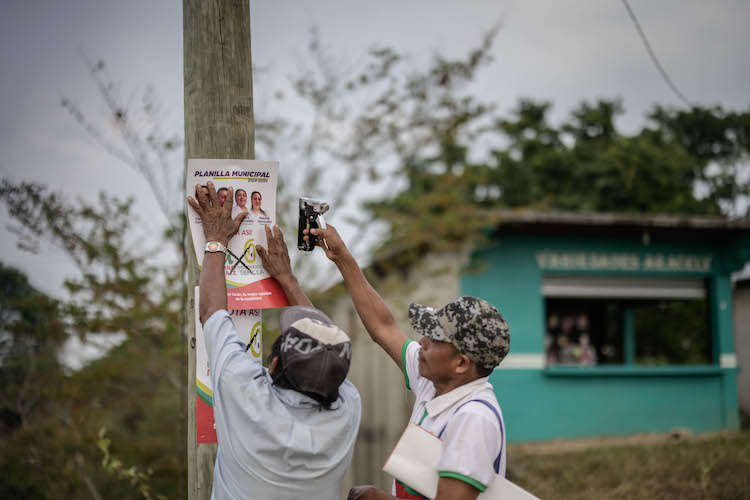
Can you explain why you believe the local races matter more than the presidential contest?
Most people outside of the capital feel like the presidential race is already a done deal. Whoever comes out on top in a field of more than two dozen candidates in this first round, it will almost certainly be someone from the right, they believe. So, in that sense, the race for president has been defined by one side of the political divide. But in the rural communities I visited, there is a great deal of optimism around local elections and their potential to bring real and needed change.
There is this term I kept hearing, candidaturas disruptivas, or disruptor candidates who are coming out of these new alliances being made between groups that have never come together before, Indigenous people with farmers, young with old. I saw this in Honduras, in Colombia, and again in Brazil before the elections there last year. It’s a model you see across much of Latin America, and it’s being driven by this hunger for change on the ground. While much of the world sees Guatemala as a borderline failed state, I left feeling hopeful.
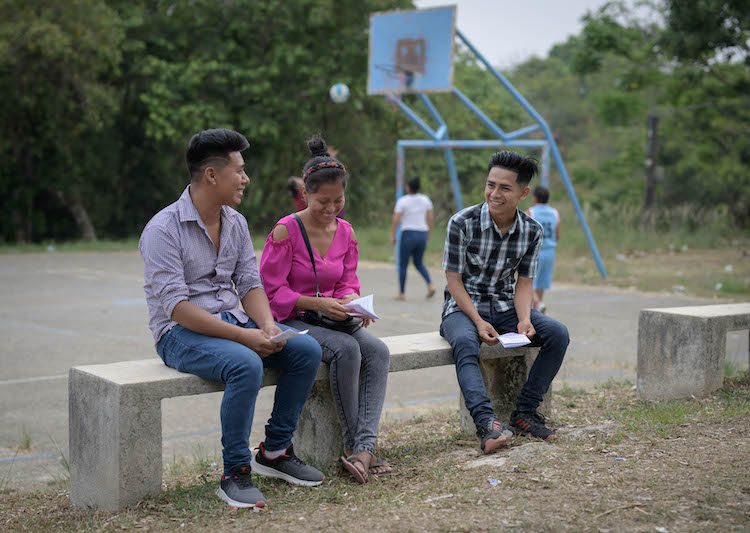
Were you able to meet any of these “disruptor candidates” during your trip?
Yes, his name is Milton Cabrera. Like a lot of Guatemalan men, he left the country and spent years living first in California, and later in Canada. He returned to his birthplace, San Jose del Golfo, to care for his ailing mother. It’s just 30km from the capital but a world away in terms of conditions. The region had just gone 15 days without electricity before I arrived. It’s surrounded by water, but there is no potable water because of pollution from a nearby mining operation. Cabrera’s first thought when he returned was that nothing had changed. He’s now running for mayor, an uphill battle given lack of funds and opponents who, according to Cabrera, are linked to drug cartels.
What drives Cabrera was his years living abroad, he told me, which made him realize that conditions in his town are not normal. And you cannot fully grasp Cabrera’s commitment without first understanding Guatemalans’ deeply held connection to the land. If given the choice, most don’t want to leave. Guatemala is a beautiful country. We spent time in towns high on the mountains where you feel you are touching the sky. And in all of them it’s the same story: they are fighting to defend their land.
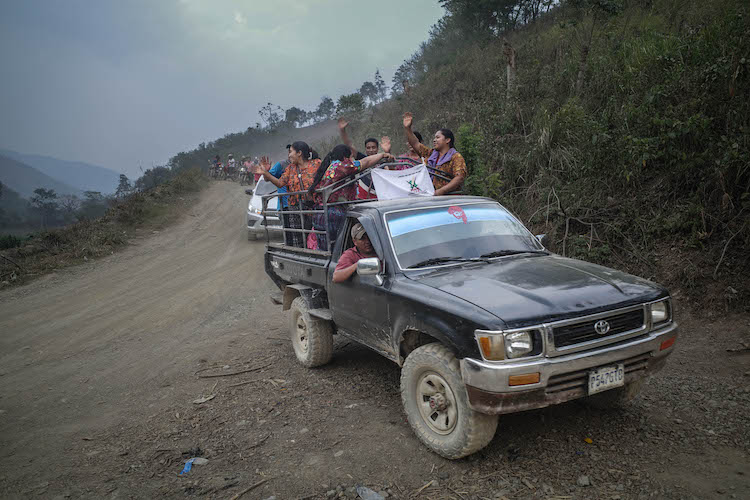
What about the journalists you spoke with? What did they tell you?
They are very scared. I spoke with many journalists by phone who did not want to give me their names. Many have fled or are working anonymously. It’s probably the worst situation I’ve seen for reporters in all my travels. And what they tell me is that Zamora’s arrest was a clear message. Zamora had national and international recognition. He was a powerful figure. If they can do that to him, what chance do local community reporters working in small municipalities have? There is a lot of fear. Some told me they had been approached by local candidates asking them to do friendly coverage for their campaigns or face repercussions. Those who said no are now in hiding. So, I’m working with the groups Article 19 and Prensa Communitaria to connect some of these reporters with international journalists. The hope is that while they can silence local reporters, that is often much harder to do when there is an international presence.
Did you encounter any international media while you were there?
I didn’t see any. Apparently, there is not a lot of interest in Guatemala, even though Guatemalans account for a large number of those trying to enter the US through its southern border. A lot of people I spoke with wondered why no one comes to get a better sense of why so many Guatemalans are leaving. Many of the migrants who died in the recent fire at a detention center in Ciudad Juarez were in fact Guatemalan. There is a humanitarian crisis happening, and yet most or all of the coverage is around the US border. No one is traveling to these migrants’ hometowns to see what conditions are like.
Let’s talk about some of your photos. Are there any that stand out for you, that offer some insight about Guatemala beyond the headlines?
I was recently in Perú, where I met the brother of an Indigenous man killed by police. I asked him what he wanted most, and he said he wasn’t interested in revenge. “We just want people to know us,” he said, “to know that we are not lazy or terrorists, as the government says.” He asked me to spend a day with his community. “Please tell people who we are.” So that is what I try to do. I was in a meeting with local politicians in a small village and I left to watch a group of kids playing soccer. I began to think about my own kids, and about the isolation that so many in the US experience, and how that contrasts with the immense feeling of solidarity I saw in Guatemala. I think that is a real source of strength out of which can come strong leaders, and strong journalists.
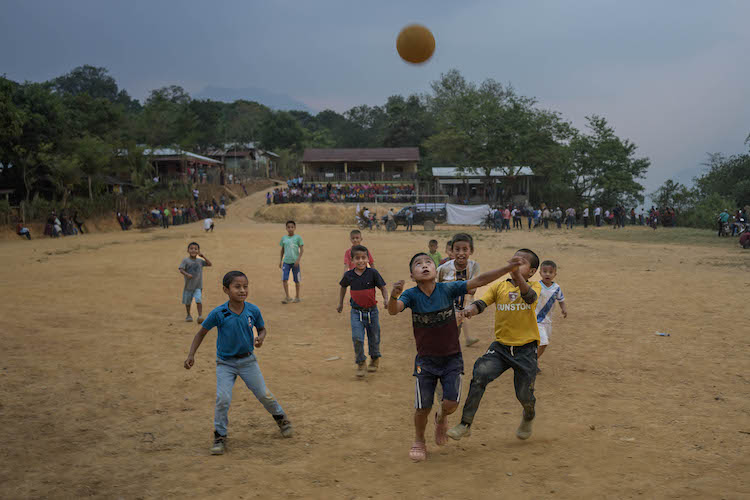
I have another portrait of a former guerrilla fighter who is now involved in local politics. Many of the armed groups that he either fought against or alongside are still there, but he told me he now wants to participate in the struggle for change without weapons. And I have a photo of a 15-year-old girl I met. She was carrying a small baby in her arms, and she told me she wants to be a teacher when she grows up so she can help her neighbors. I asked her what she thought of the coming elections, and I expected a shrug. Instead, she said she hoped they would be good for her community.




